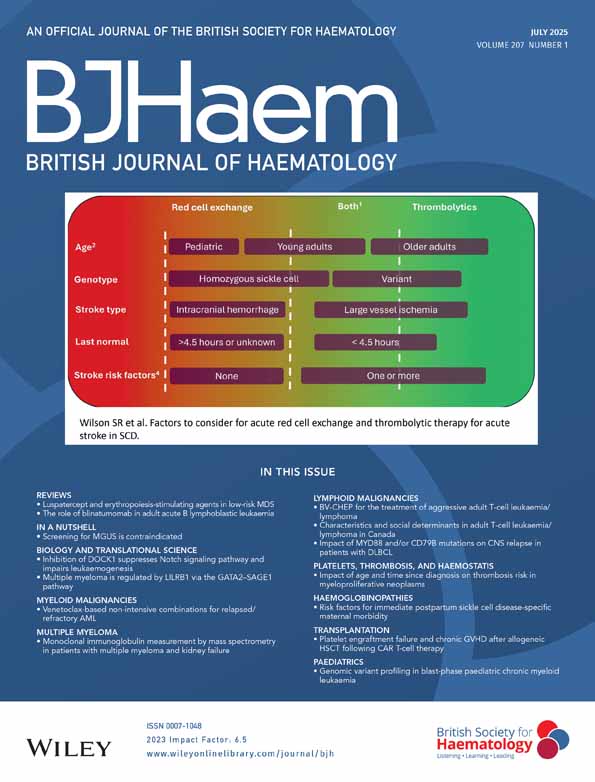Haemopoietic reconstitution by donor-derived myelodysplastic progenitor cells after haemopoietic stem cell transplantation
Abstract
A 50-year-old woman who was retrospectively diagnosed with an early asymptomatic myelodysplastic syndrome (MDS) served as a haemopoietic stem cell donor for her HLA-identical sister who had chemotherapy-refractory non-Hodgkin's lymphoma. The MDS of the donor was classified as refractory anaemia (RA) and cytogenetically characterized by deletion of the long arm of chromosome 20 [del(20q)]. Donor cell engraftment in marrow and peripheral blood was analysed over a period of 5 months after transplant using conventional cytogenetics, fluorescence in situ hybridization, and variable number of tandem repeats. Neutrophil counts >0.5 × 109/l and platelet counts >20 × 109/l were reached promptly on days 12 and 24, respectively. Throughout the period of observation the percentage of cells with the del(20q) abnormality in the recipient's marrow and peripheral blood was comparable to the proportion of these cells in the donor. These data indicate that the abnormal clone was capable of homing to the marrow, proliferating, differentiating, and therefore contributing to haemopoiesis in a relatively efficient manner. This implies that MDS progenitor cells may not have homing and growth deficiencies, a finding that has particular relevance for autologous transplantation in MDS patients where tumour cells potentially contaminate the graft.




